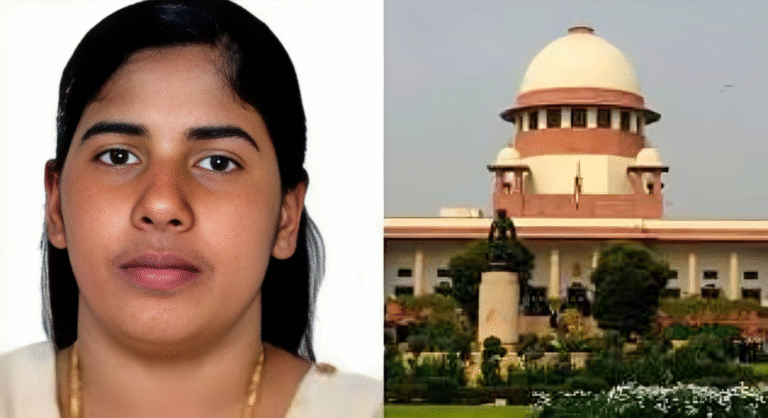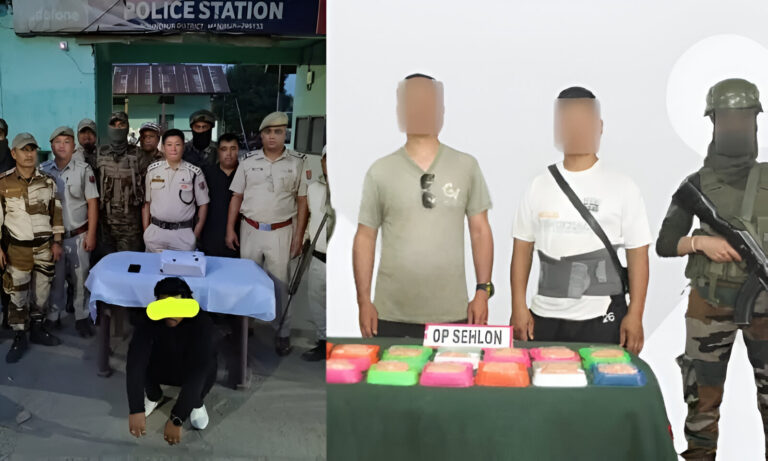Manipur Congress Challenges Waqf (Amendment) Act 2025 in Supreme Court Amid Nationwide Protests
📰 News Summary
On April 15, 2025, the Manipur Pradesh Congress Committee (MPCC) filed a petition in the Supreme Court challenging the constitutional validity of the Waqf (Amendment) Act 2025. The petition, submitted by MPCC Working President Md Fajur Rahim and former MLA Md Amin Shah, argues that the Act infringes upon Articles 25 and 26 of the Indian Constitution, which guarantee religious freedom and the right to manage religious affairs. This legal move follows widespread protests across Manipur and other parts of India, where the Act has been labeled as “unconstitutional” and an attack on minority rights.
📜 Understanding the Waqf (Amendment) Act 2025
The Waqf (Amendment) Act 2025 aims to centralize the management of Waqf properties—assets permanently donated by Muslims for religious or charitable purposes. Proponents argue that the Act seeks to streamline administration, safeguard heritage sites, and promote social welfare. However, critics contend that it undermines the autonomy of State Waqf Boards, particularly in states like Manipur, by centralizing control and weakening local governance structures.
🧭 The Legal Challenge: Manipur Congress’s Stand
The MPCC’s petition to the Supreme Court is grounded in the belief that the Waqf (Amendment) Act violates fundamental constitutional rights. Specifically, they argue that the Act infringes upon:
- Article 25: Guaranteeing the freedom of conscience and the right to freely profess, practice, and propagate religion.
- Article 26: Ensuring the freedom to manage religious affair
By centralizing control over Waqf properties, the Act is seen as encroaching upon the rights of religious communities to manage their own affairs, thereby violating these constitutional provisions.
🔥 Public Outcry and Protests
The enactment of the Waqf (Amendment) Act has sparked significant unrest across India, with Manipur witnessing particularly intense protests. The situation escalated when the house of BJP Minority Morcha’s state president, Md Asker Ali, was set ablaze by a mob after he expressed support for the Act on social media. In response, prohibitory orders were imposed in the Lilong assembly constituency, and security was heightened in Muslim-dominated areas of the Imphal Valley. E-Pao+3Northeast News+3The Law Advice+3
🧑⚖️ Broader Political Implications
The challenge to the Waqf (Amendment) Act by the Manipur Congress is part of a larger national discourse on minority rights and federalism. The Act’s centralization of Waqf property management is perceived by many as a move that undermines the autonomy of state institutions and religious communities. This has led to a broader debate on the balance between national integration and the preservation of local governance structures.Northeast News
❓ FAQs
Q1: What is the Waqf (Amendment) Act 2025?
The Waqf (Amendment) Act 2025 is legislation aimed at centralizing the management of Waqf properties, which are assets donated by Muslims for religious or charitable purposes.The Law Advice+4India Today NE+4Northeast News+4
Q2: Why is the Act controversial?
Critics argue that the Act infringes upon constitutional rights by centralizing control over Waqf properties, thereby undermining the autonomy of religious communities and state institutions.
Q3: What actions has the Manipur Congress taken against the Act?
The Manipur Congress filed a petition in the Supreme Court challenging the constitutional validity of the Waqf (Amendment) Act 2025, arguing that it violates Articles 25 and 26 of the Indian Constitution.Northeast News+1India Today NE+1
Q4: What has been the public response to the Act?
The Act has sparked nationwide protests, with significant unrest in Manipur, including incidents of violence and the imposition of prohibitory orders in certain areas.Northeast News
Q5: What are the broader political implications of this issue?
The controversy surrounding the Waqf (Amendment) Act highlights tensions between national integration efforts and the preservation of local governance and minority rights, prompting a broader debate on federalism and religious freedom in India.






